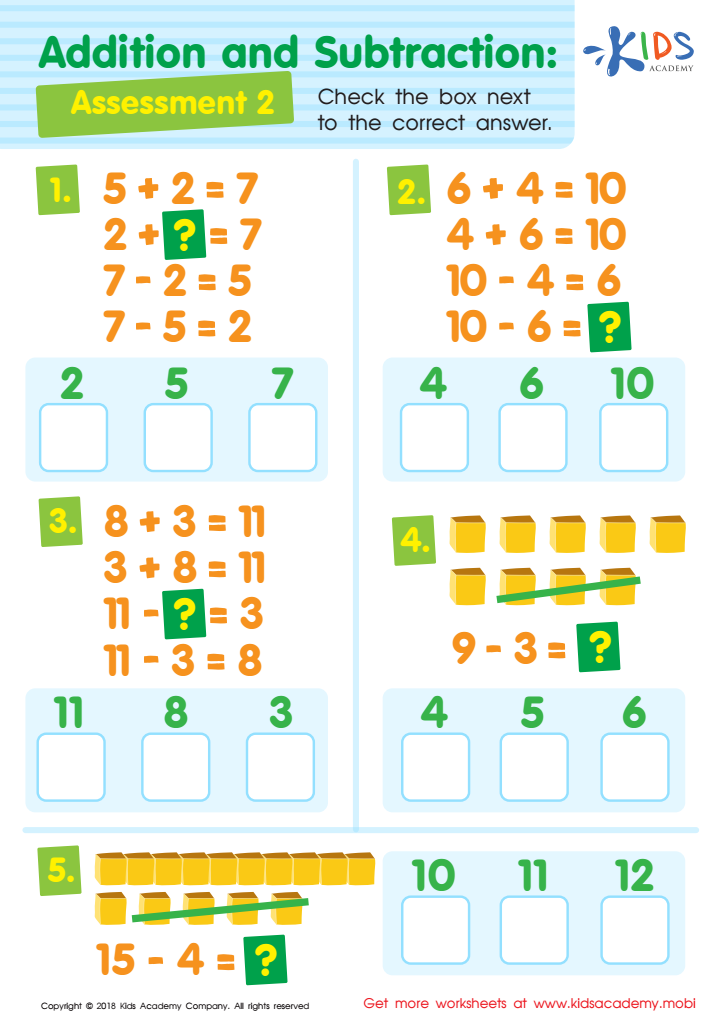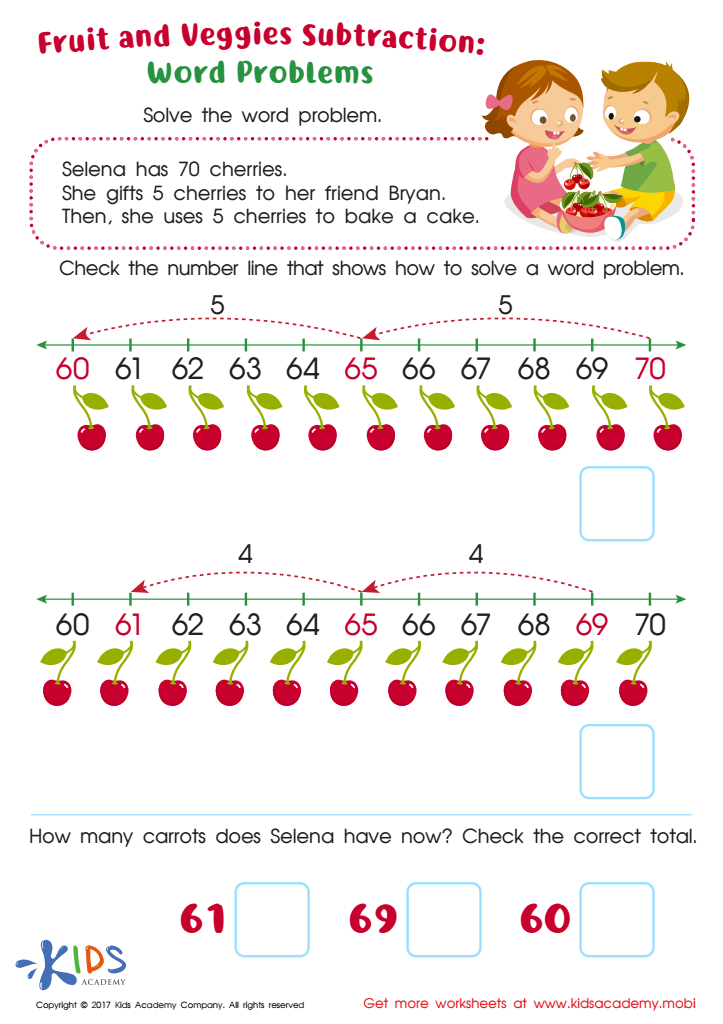Enhancing logical thinking Addition & Subtraction Worksheets for Ages 4-9
3 filtered results
-
From - To
Unlock your child's potential with our "Enhancing Logical Thinking Addition & Subtraction Worksheets for Ages 4-9". Tailored to align with early learning standards, these engaging activities promote critical thinking and problem-solving skills. Designed to be both fun and educational, the worksheets include colorful illustrations and a variety of challenges that keep young minds attentive. Perfect for home or classroom use, they help children build a strong mathematical foundation while fostering a love for learning. Empower your child to achieve academic success with these expertly crafted resources, ensuring they gain confidence and proficiency in addition and subtraction.


Addition and Subtraction Assessment 2 Worksheet


Subtraction Word Problems Free Printable
Enhancing logical thinking in addition and subtraction for children ages 4-9 is crucial for their overall cognitive development and academic success. At this formative stage, logical thinking lays the groundwork for problem-solving skills, a necessary competence across all aspects of life. When young students practice logical thinking, they learn how to identify patterns, make connections, and understand the relationships between numbers and operations. This skill not only enhances their math abilities but also enhances their analytical skills applicable to subjects like science, reading, and beyond.
Fostering these skills at an early age helps children approach problems step-by-step, breaking them down into manageable parts. This methodical approach not only boosts their confidence in tackling math problems but also instills persistence and resilience when faced with challenging tasks. Furthermore, early mastery of basic arithmetic operations like addition and subtraction forms a strong foundation for more complex mathematical concepts they will encounter in later grades.
In an increasingly data-driven world, developing logical thinking and basic arithmetic competency prepares children for future academic and professional environments where quantitative reasoning is essential. Therefore, parents and teachers play a pivotal role in incorporating fun, interactive, and practical activities that stimulate these cognitive skills, thereby setting children on a path to lifelong learning and success.
 Assign to My Students
Assign to My Students





















